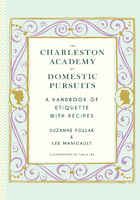HOUSE OF COMMONS
July 8, 1920
DECISION OF THE ARMY COUNCIL
The Army Council have considered the Report of the Hunter Committee, together with the statement which Brigadier-General Dyer has by their direction submitted to them. They consider that, in spite of the great difficulties of the position in which this officer found himself on 13th April, 1919, at Jallianwallah Bagh, he cannot be acquitted of an error of judgment. They observe that the Commander-in-Chief in India has removed Brigadier-General Dyer from his employment in India and that he has been informed that no further employment will be offered to him in India and that he has in consequence reverted to half-pay, and that the Selection Board in India has passed him over for promotion. These decisions the Army Council accept. They do not consider that further employment should be offered to Brigadier-General Dyer outside India. They have also considered whether any further action of a disciplinary nature is required, and the Army Council, in view of all the circumstances, do not feel called upon from the military point of view, with which alone they are concerned, to take any further action.
The conduct of a military officer may be dealt with in three perfectly distinct spheres. First of all, he may be removed from his employment or his appointment, relegated to half pay, and told that he has no prospect of being employed again. This may be done to him by a simple administrative act. It is sufficient for the competent superior authority to decide that the interests of the public service would be better served if someone else were appointed in his stead, to justify and complete the taking of such a step. The officer in question has no redress. He has no claim to a court of inquiry or a court martial. He has no protection of any kind against being deprived of his appointment, and being informed that he has no further prospect of getting another. This procedure may seem somewhat harsh, but a little reflection will show that it is inevitable. There is no excuse for superior authority not choosing the most suitable agents for particular duties, and not removing unsuitable agents from particular duties. During the War, as every Member of the Committee knows, hundreds, and probably thousands, of officers have been so dealt with by their superiors; and since the War, the tremendous contraction of the Army has imposed similar hardships on hundreds, and possibly thousands, of officers against whom not one word of reproach could be uttered, and whose careers in many cases have been careers of real distinction and of invariable good service. This applies to all appointments in the Army, and, I have no doubt, in the Navy too, and it applies with increasing severity in proportion as the appointments are high ones. From the humble lance-corporal, who reverts to private by a stroke of the pen, from the regimental adjutant, if the colonel thinks he would prefer some other subaltern, up to the highest General or Field-Marshal, all officers are amenable to this procedure in regard to the appointments which they hold.
The second method is of a more serious character, and it affects, not the employment of an officer, but his status and his rank. Here it is not a question of choosing the right man for a particular job, but of retiring an officer compulsorily from the Service, or imposing on him some reduction or forfeiture in his pension or retired pay. In this case the officer is protected, under Article 527 of the Royal Warrant, by the fact that it is necessary for three members of the Army Council to approve the proceeding, and by certain rights of laying his case before them. All the same, the Secretary of State for the time being, by virtue of his office, has the power to make a submission direct to the Crown, and advise that an officer be retired compulsorily, or simply that his name be removed from the list, His Majesty having no further use for his services.
The third method is of a definitely penal character. Honour, liberty, life, are affected. Cashiering, imprisonment, or the death penalty may be involved, and for this third category, of course, the whole resources and protection which judicial procedure, lawful tribunals, and British justice accord to an accused person are brought into play. Those are the three different levels of procedure in regard to the treatment of the conduct of officers.
Coming to the case of General Dyer, it will be seen that he was removed from his appointment by the Commander-in-Chief in India; that he was passed over by the Selection Board in India for promotion; that he was informed, as hundreds of officers are being and have been informed, that there was no prospect of further employment for him under the Government of India; and that, in consequence, he reverted automatically to half-pay. These proceedings were brought formally to the notice of the Army Council by a letter from the India Office, which recommended, further, that he should be retired from the Army, and by a telegram from the Commander-in-Chief in India, which similarly recommended that he should be ordered to retire.
However we may dwell upon the difficulties of General Dyer during the Amritsar riots, upon the anxious and critical situation in the Punjab, upon the danger to Europeans throughout that province, upon the long delays which have taken place in reaching a decision about this officer, upon the procedure that was at this point or at that point adopted, however we may dwell upon all this, one tremendous fact stands out—I mean the slaughter of nearly 400 persons and the wounding of probably three or four times as many, at the Jallianwallah Bagh on April 13. That is an episode which appears to me to be without precedent or parallel in the modern history of the British Empire. It is an event of an entirely different order from any of those tragical occurrences which take place when troops are brought into collision with the civil population. It is an extraordinary event, a monstrous event, an event which stands in singular and sinister isolation.
Collisions between troops and native populations have been painfully frequent in the melancholy aftermath of the Great War. In this particular series of disturbances there were thirty-six or thirty-seven cases of firing upon crowds in India, and there have been numerous cases in Egypt. In all these cases the officer in command is placed in a most painful and difficult position. I agree with the discription given by the Adjutant-General in India, of the distasteful, painful, embarrassing, torturing situation, mental and moral, in which the British officer in command of troops is placed when he is called upon to decide whether or not he opens fire, not upon the enemies of his country, but on those who are his countrymen, or who are citizens of our common Empire. No words can be employed which would exaggerate those difficulties. But there are certain broad lines by which an officer in such cases should be guided. First of all, he may ask himself, Is the crowd attacking anything or anybody? Surely that is the first question. Are they trying to force their way forward to the attack of some building, or some cordon of troops or police, or are they attempting to attack some band of persons or some individual who has excited their hostility? Is the crowd attacking? That is the first question which would naturally arise.
The second question is this: Is the crowd armed? That is surely another great simple fundamental question. By armed I mean armed with lethal weapons. Men who take up arms against the State must expect at any moment to be fired upon. Men who take up arms unlawfully cannot expect that the troops will wait until they are quite ready to begin the conflict or until they have actually begun fighting. Armed men are in a category absolutely different from unarmed men. An unarmed crowd stands in a totally different position from an armed crowd. At Amritsar the crowd was neither armed nor attacking. [Interruption.] I carefully said that when I used the word 'armed' I meant armed with lethal weapons, or with firearms. There is no dispute between us on that point. 'I was confronted,' says General Dyer, 'by a revolutionary army.' What is the chief characteristic of an army? Surely it is that it is armed. This crowd was unarmed. These are simple tests which it is not too much to expect officers in these difficult situations to apply.
There is another test which is not quite so simple, but which nevertheless has often served as a good guide. I mean the doctrine that no more force should be used than is necessary to secure compliance with the law. There is also a fourth consideration by which an officer should be guided. He should confine himself to a limited and definite objective, that is to say to preventing a crowd doing something which they ought not to do, or to compelling them to do something which they ought to do. All these are good guides for officers placed in the difficult and painful situation in which General Dyer stood.
My right hon. Friend (Sir E. Carson) will say it is easy enough to talk like this, and to lay down these principles here in safe and comfortable England, in the calm atmosphere of the House of Commons or in your arm-chairs in Downing Street or Whitehall, but it is quite a different business on the spot, in an emergency, confronted by a howling mob, with a great city or a whole province quivering all around with excitement. I quite agree. Still these are good guides and sound, simple tests, and I believe it is not too much to ask of our officers to observe and to consider them. After all, they are accustomed to accomplish more difficult tasks than that. Over and over again we have seen British officers and soldiers storm entrenchments under the heaviest fire, with half their number shot down before they entered the position of the enemy, the certainty of a long, bloody day before them, a tremendous bombardment crashing all around—we have seen them in these circumstances taking out their maps and watches, and adjusting their calculations with the most minute detail; and we have seen them show, not merely mercy, but kindness to prisoners, observing restraint in the treatment of them, punishing those who deserved to be punished by the hard laws of war, and sparing those who might claim to be admitted to the clemency of the conqueror. We have seen them exerting themselves to show pity and to help, even at their own peril, the wounded. They have done it thousands of times, and in requiring them, in moments of crisis, dealing with civil riots, when the danger is incomparably less, to consider these broad, simple guides, really I do not think we are taxing them beyond their proved strength. I do not think it is too much to ask a British officer in this painful, agonising position, to pause and consider these broad, simple guides—I do not even call them rules—before he decides upon his course of conduct. Under circumstances, in my opinion, infinitely more trying, they have shown themselves capable of arriving at right decisions.
If we offer these broad guides of a positive character to our officers in these anxious and dangerous times, there is surely one guide which we can offer them of a negative character. There is surely one general prohibition which we can make. I mean a prohibition against what is called 'frightfulness.' What I mean by frightfulness is the inflicting of great slaughter or massacre upon a particular crowd of people, with the intention of terrorising not merely the rest of the crowd, but the whole district or the whole country. We cannot admit this doctrine in any form. Frightfulness is not a remedy known to the British pharmacop?ia. I yield to no one in my detestation of Bolshevism, and of the revolutionary violence which precedes it. I share with my right hon. and learned Friend (Sir E. Carson) many of his sentiments as to the world-wide character of the seditious and revolutionary movement with which we are confronted. But my hatred of Bolshevism and Bolsheviks is not founded on their silly system of economics, or their absurd doctrine of an impossible equality. It arises from the bloody and devastating terrorism which they practise in every land into which they have broken, and by which alone their criminal regime can be maintained. Governments who have seized upon power by violence and by usurpation have often resorted to terrorism in their desperate efforts to keep what they have stolen; but the august and venerable structure of the British Empire, where lawful authority descends from hand to hand and generation after generation, does not need such aid. Such ideas are absolutely foreign to the British way of doing things.
These observations are mainly of a general character but their relevance to the case under discussion can be well understood, and they lead me to the specific circumstances of the fusillade at the Jallianwallah Bagh. Let me marshal the facts. The crowd was unarmed, except with bludgeons. It was not attacking anybody or anything. It was holding a seditious meeting. When fire had been opened upon it to disperse it, it tried to run away. Pinned up in a narrow place considerably smaller than Trafalgar Square, with hardly any exits, and packed together so that one bullet would drive through three or four bodies, the people ran madly this way and the other. When the fire was directed upon the centre, they ran to the sides. The fire was then directed upon the sides. Many threw themselves down on the ground, and the fire was then directed on the ground. This was continued for eight or ten minutes, and it stopped only when the ammunition was on the point of exhaustion, enough ammunition being retained to provide for the safety of the force on its return journey. If more troops had been available, says the officer, the casualties would have been greater in proportion. If the road had not been so narrow, the machine guns and the armoured cars would have joined in. Finally, when the ammunition had reached the point that only enough remained to allow for the safe return of the troops, and after 379 persons, which is about the number gathered together in this Chamber to-day, had been killed, and when most certainly 1,200 or more had been wounded, the troops, at whom not even a stone had been thrown, swung round and marched away. I deeply regret to find myself in a difference of opinion from many of those with whom, on the general drift of the world's affairs at the present time, I feel myself in the strongest sympathy; but I do not think it is in the interests of the British Empire or of the British Army for us to take a load of that sort for all time upon our backs. We have to make it absolutely clear, some way or other, that this is not the British way of doing business.
I shall be told that it 'saved India.' I do not believe it for a moment. The British power in India does not stand on such foundations. It stands on much stronger foundations. I am going to refer to the material foundations of our power very bluntly. Take the Mutiny as the datum line. In those days, there were normally 40,000 British troops in the country, and the ratio of British troops to native troops was one to five. The native Indian Army had a powerful artillery, of which they made tremendous use. There were no railways, no modern appliances, and yet the Mutiny was effectively suppressed by the use of a military power far inferior to that which we now possess in India. Since then the British troops have been raised to 70,000 and upwards, and the ratio of British to native troops is one to two. There is no native artillery of any kind. The power and the importance of the artillery has increased in the meantime ten and perhaps twenty-fold. Since then a whole series of wonderful and powerful war inventions have come into being, and the whole apparatus of scientific war is at the disposal of the British Government in India—machine guns, the magazine rifle, cordite ammunition, which cannot be manufactured as gunpowder was manufactured by a non-scientific power, and which is all stored in the magazines under the control of the white troops. Then there have been the great developments which have followed the conquest of the air and the evolution of the aeroplane. Even if the railways and the telegraphs were cut or rendered useless by a strike, motor lorries and wireless telegraphy would give increasingly the means of concentrating troops, and taking them about the country with an extraordinary and almost undreamed-of facility. When one contemplates these solid, material facts, there is no need for foolish panic, or talk of its being necessary to produce a situation like that at Jallianwallah Bagh in order to save India. On the contrary, as we contemplate the great physical forces and the power at the disposal of the British Government in their relations with the native population of India, we ought to remember—as a warning—the words of Macaulay upon an earlier period—
'and then was seen what we believe to be the most frightful of all spectacles, the strength of civilisation without its mercy.'
Our reign in India or anywhere else has never stood on the basis of physical force alone, and it would be fatal to the British Empire if we were to try to base ourselves only upon it. The British way of doing things has always meant and implied close and effectual co-operation with the people of the country. In every part of the British Empire that has been our aim, and in no part have we arrived at such success as in India, whose princes spent their treasure in our cause, whose brave soldiers fought side by side with our own men, whose intelligent and gifted people are co-operating at the present moment with us in every sphere of government and of industry. It is quite true that in Egypt last year there was a complete breakdown of the relations between the British and the Egyptian people. Every class and every profession seemed united against us. What are we doing? We are trying to rebuild that relationship. For months Lord Milner has been in Egypt, and now we are endeavouring laboriously and patiently to rebuild from the bottom that relation between the British administration and the people of Egypt which we have always enjoyed in the past, and which it was so painful for us to feel had been so suddenly ruptured. It is not a question of force. We had plenty of force, if force were all that was needed.
What we want is co-operation and goodwill, and I beseech hon. and right hon. Gentlemen to look at the whole of this vast question, and not merely at one part of it. If the disastrous breakdown which has occurred in a comparatively small country like Egypt, if this absolute rupture between the British administration and the people of the country had taken place throughout the mighty regions of our Indian Empire, it would have constituted one of the most melancholy events in the history of the world. That it has not taken place up to the present is, I think, largely due to the constructive policy of His Majesty's Government, to which my right hon. Friend the Secretary of State for India has made so great a personal contribution. I was astonished by my right hon. Friend's sense of detachment when, in the supreme crisis of the War, he calmly journeyed to India, and remained for many months absorbed and buried in Indian affairs. It was not until I saw what happened in Egypt, and, if you like, what is going on in Ireland to-day, that I appreciated the enormous utility of such service, from the point of view of the national interests of the British Empire, in helping to keep alive that spirit of comradeship, that sense of unity and of progress in co-operation, which must ever ally and bind together the British and Indian peoples.[5]
***
It is quite true that General Dyer's conduct has been approved by a succession of superiors above him who pronounced his defence, and that at different stages events have taken place which, it may well be argued, amount to virtual condonation so far as a penal or disciplinary action is concerned. General Dyer may have done wrong, but at any rate he has his rights, and I do not see how in face of such virtual condonation as is set out on page 20 of this able document, it would have been possible, or could have been considered right, to take disciplinary action against him. For these reasons the Cabinet found themselves in agreement with the conclusions of the Army Council, and to those moderate and considered conclusions we confidently invite the assent of the House.















